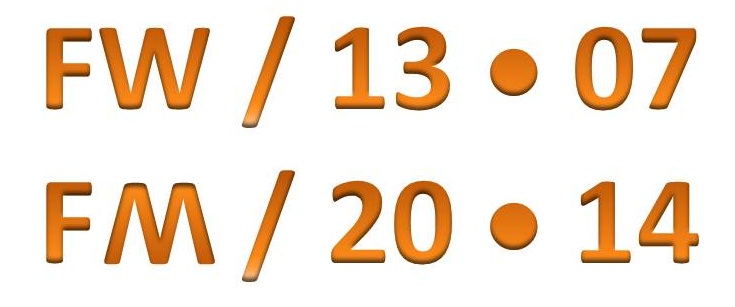FWFM-2014 – 2nd International Workshop Fun With Formal Methods
July 13, 2014 · Vienna, Austria
Important Dates
Sunday, May 25, 2014: extended date for extended abstract or paper submission;
Sunday, June 01, 2014: acceptance notification;
Sunday, June 08, 2014: updated abstracts and papers due for pre-proceedings;
Sunday, July 13, 2014: FWFM workshop in Vienna.
Registration Dates
Early: from April 20 to June 08, 2014;
Late: from June 09 to June 30, 2014;
On-site: from July 12 to July 13, 2014.
Please refer to the main registration page of VSL at http://vsl2014.at/registration/ for further details, fees amd methods of payment.
Aims and Scope
Almost half of a century has passed since Robert W. Floyd published the first research that explicitly discussed formally how to assign meaning to programs. But recently David L. Parnas have called Really Rethinking “Formal Methods”, to question the assumptions underlying the well-known current formal software development methods to see why they have not been widely adopted and what should be changed. So, things are right where they started decades ago?
Not at all, since industrial applications of Formal Methods are not the unique measure of success. Another dimension where we can discuss utility of Formal Methods could be better education. A very popular (in Russia) aphorism of Mikhail Lomonosov (the first Russian academician) says: “Mathematics should be learned just because it disciplines and bring up the mind”. We do believe that Formal Methods discipline and bring up minds in Computer Science. We would not like to say that educators should not care about industrial applications of Formal Methods (quite opposite, we must care!). At the same time Formal Methods education helps to bridge a "cultural gap" (E.W.Dijkstra) between Mathematics and Computer Science.
The problem is how to overcome a stable allergy to Formal Methods: many people think Formal Methods are too pure in theory but too poor in practice. We do believe that the basic reason behind this allergy is the absence of primary, elementary level. It is not wise to start teaching arithmetic from Peano axiomatic, but it is a common sense to start from elementary problems about numbers of apples, pencils, etc.
For example, nobody teaches primary school children to prove in Peano axiomatic ⊢∀x.∀y.∀z : ((x + y) + z) = (x + (y + z)), but everyone teaches to solve elementary problems like the following one: I gave 5 apples to Peter, and then he gave 2 apples to John; how many apples does Peter have after that?
In our vision, a part of the reason of student’s and engineer’s poor attitude to Formal Methods, is very simple: FM-experts do not care about primary education in this field at the early stage of higher education. In particular, many courses on Formal Semantics start with fearful terms like state machine, logic inference, denotational semantics, etc., without elementary explanations of the basic notions.
The workshop is designed for
- enjoying the art and beauty of Formal Methods,
- discussing experience how to make Formal Methods easy,
- presenting application of Formal Methods to puzzles, to games, etc.,
- non-standard problem solving outside programming and Computer Science,
- everything else about Fun and Joy of Formal Methods.
Paper Submissions
Extended abstracts and papers on topics related to FWFM are solicited. There is no any strict limit for page number or style, but it is recommended to be in range 2-4 pages for extended abstracts and 4-16 pages for papers. (Single column, single interval, font not less than 12 for review convenience.)
All submitted paper will be reviewed by 2 members of Program Committee (or their sub-reviewers) and selection of accepted papers will based on relevance, quality and (partly) originality of the submitted papers. Papers already published somewhere are also welcome but must make it explicit their publication status (for including to proceedings).
Please submit your extended abstracts and papers via Easychair page https:/www.easychair.org/conferences/?conf=fwfm2014.
We plan to publish informal proceedings before the workshop and disseminate them among participants at the workshop on USB-sticks. Selected papers of this workshop will be published in the electronic journal Informatica Didactica (http://www.informatica-didactica.de/cmsmadesimple/index.php?page=home) devoted to post-proceedings of FWFM-2014.
Program Committee
- Paul Curzon (Queen Mary University of London)
- Vladimir Itsykson (SPbSPU)
- Victor Kuliamin (Institute for System Programming, Russian Academy of Sciences)
- Dominique Mery (Université de Lorraine, LORIA)
- Nikolay Nepejvoda (Program Systems Institute RAS)
- Sigrid Schubert (Universität Siegen)
- Andreas Schwill (University of Potsdam)
- Nikolay Shilov (A.P. Ershov Institute of Informatics Systems, RAN) - chair
